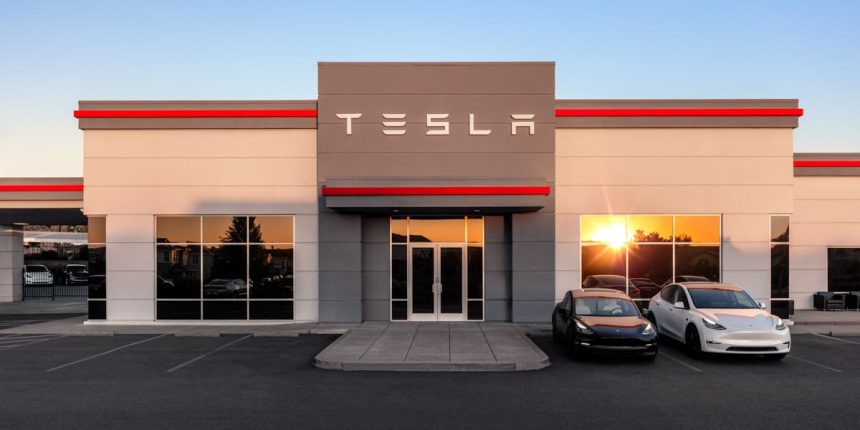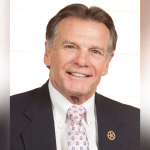The views expressed by contributors are their own and not the view of SuperTalk Mississippi Media
Throughout the course of human history, there has been one constant: change.
Driven by human innovation, change addresses human challenges, advances society, and improves the quality of life. Innovation leads to the production of technology. Often the two are conflated.
Innovation is abstract and intangible, expressed in the form of ideas. Technology is tangible and manifests itself in the form of consumable goods and services. The word technology evolved from the combination of two Greek words: techne, meaning “art, “skill” or “craft” and logos, meaning “logic” or “reason.” Most of us think about technology in the context of digital systems – computers, software, etc.
Obviously, computers were not around when the Greeks invented the word, but technology transcends all human disciplines and applies whenever humans use their God-given skills to create benefits for society.
It’s mind-boggling to reflect on the myriad of technologies that have positively transformed the planet, a sequence that has been repeating and accumulating since humans inhabited the Earth. Driving these inventions are tools – tools crafted by human innovators. Innovators leverage tools to create new technologies – often as tools used by other innovators to create goods and services.
Perhaps no single invention has transformed our world more than the Internet. Arguably the ultimate and most valuable tool in human history is the Internet. The technology by which networks interconnect is a product of numerous tools. The development of packet switching and the Internet Protocol Suite – the protocol networks, computers, and devices use to communicate brought the Internet to life. The scientists and mathematicians who invented those building blocks in the 1970s didn’t envision the impact their creations would have on human life.
Digital technologies have also transformed the vehicle buying experience. Tesla, largely credited with thrusting electric vehicles into the mainstream, introduced its first electric car, the Roadster, in 2008. Tesla dominates the EV market, accounting for 65% of new registered electric vehicles sold in the U.S. in 2022. While technology is the catalyst for change, humans, by nature, are averse to change. We tend to be a product of our experiences, further feeding our reluctance to change.
Throughout my 33-year career as the CEO of an information technology solutions provider, I was regularly asked “How do you keep up with all of that new technology?” “Oh, that’s easy,” I would say. “I’ve got an army of smart people who track emerging technologies and ensure we’re positioned to deliver new solutions to the market. It’s the everchanging way in which technology is consumed that keeps me up at night.”
#Embracechange was a guiding principle in our company. We accepted and welcomed change, reacting with new services and novel solutions to solve an organization’s information handling and communications challenges. Ignoring the impact of new technology and evolving consumption models is a recipe for failure. We were keenly aware that transformation is inevitable – and critical to our very survival. We accepted that human innovation is the only way to solve the perennial problem of matching scarce supply with an ever-increasing demand.
Detailing how the Internet has changed our lives – for the better – is too voluminous for this article. The common thread in most of these new technologies is new consumption models. We can purchase a house, trade securities, buy groceries, check our hearts, and blood sugar; rid our home of pests, and watch television without a “cord” or dedicated satellite dish. All these experiences utilize pervasive public connectivity or bandwidth to our homes that not too long ago cost more than a mortgage and were only available to commercial addresses near an Internet Service Provider.
In 2019, Tesla CEO Elon Musk adopted a strategy to sell its cars only online directly to consumers, with a few stores and service centers sprinkled around the country. Industry experts initially declared that Musk was making a huge error, arguing that traditional dealerships were a requirement to succeed in the car business.
The experts missed the mark. People who have purchased electric vehicles from Tesla report overall satisfaction with the experience and would likely buy future cars online. Other upstart EV manufacturers like Rivian and Lucid Motors have followed Tesla’s approach, only selling their vehicles online, direct from the manufacturer. Is this online, direct route-to-market model the future of the automobile industry? Could be. The market will decide.
However, the market in Mississippi will not get to decide if HB 401 becomes law. The bill, which passed the House last week on a vote of 104-7, would prohibit the direct sale of new vehicles by manufacturers to consumers in Mississippi, requiring that the sale flows through an independent dealer, i.e., a “middleman.” This is a blatant government attempt to manage the auto retail industry in this state.
Bernie Sanders would be proud.
Choice and competition fuel innovation, improve customer experiences and drive efficiency. Bernie loathes choice. “You don’t necessarily need a choice of 23 underarm spray deodorants or of 18 different pairs of sneakers when children are hungry in this country,” the self-avowed socialist said during an interview on MSNBC in 2015.
This sort of central planning never works and eventually succumbs to market pressures. However, while the government protects this legacy vehicle sales process in Mississippi, consumers will lose until reality reigns. Mississippi is already awash with hyper-licensing.
This evolution is inevitable. Apple, Google, and others plan to sell EVs directly in the future. U.S. automakers have also indicated their strong interest in selling their forthcoming electric vehicles online, citing lower distribution and advertising costs. Every manufacturer has shared their aggressive plans to transition to EVs, necessitating that they offer direct sales to compete with the EV newcomers.
Will this transition to online sales, and will we see traditional dealerships go the way of the Dodo bird? I do not believe that will happen, no more than Amazon forced Wal-Mart out of business. Rather, the company simply bolted on e-commerce capability. Customers want a multi-modal experience. Consumers do not take kindly to being bullied by the government thus limiting their choices under the guise of consumer protection.
Perhaps dealers will need to become specialized and expand their value proposition to something other than merely being the only game in town. “Franchised dealers are essential to widespread EV adoption in the U.S., said Jared Allen, a spokesman for the National Automobile Dealers Association. Mr. Allen added that “effectively selling to these mass-market customers requires leveraging – not rejecting – the existing franchised dealership network.” Mr. Allen is right. Many auto buyers will prefer the experience of buying from a local outlet. They’ll want the confidence of knowing that a dealer will service their vehicle and resolve potential problems. But no doubt, dealers will need to adapt to the new paradigm.
Since his campaign in 2019, Governor Tate Reeves has championed business-friendly policies, proclaiming that his vision was to make Mississippi not only a great place to do business, but the best state to set up shop. HB 401 is antithetical to that vision. It sends the message that Mississippi is closed – at least to new vehicle consumption models.
The market is the only fair and pure arbiter of route to market ecosystems. Car buyers are far better equipped to make this determination than the government.
One thing is for sure. The direct sale of vehicles online is a speeding freight train headed downhill, and it’s loaded with disruption. No industry is immune from being “Amazon-ed or “Uber-ed.” Mississippi businesses need to #Embracechange, or perish.








